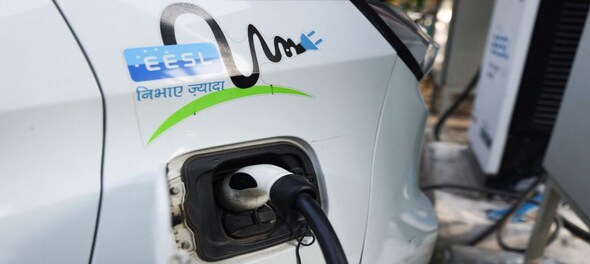
Slowing electric vehicle (EV) demand globally has raised concerns about the feasibility of transitioning from petrol and diesel cars. Questions are emerging regarding the sustainability of EV sales growth without subsidies and whether companies should adopt a technology-agnostic approach rather than solely investing in electric vehicle technology.
Major players like General Motors (GM), Ford, Tesla, and Renault have revised their growth projections and production targets for electric vehicles due to slowing demand.
GM's CEO Mary Barra has indicated a shift towards building to demand and maintaining flexibility in production lines to cater to varying demand for gasoline, electric, or hybrid cars. Despite this, the company is looking to have a balanced approach, and aims to continue its focus on an all-EV portfolio viewing hybrids as essential until 2035 and in meeting regulatory requirements.
In the face of slowing growth and competition from BYD, Tesla recently announced a $1,100 cash discount on the Model Y in China. The company has also announced discounts in the range of 5%-10% across European markets and the United States. The company’s CEO Elon Musk has warned of a sharp slowdown in sales growth this year. Rental car giant Hertz is selling 20,000 electric vehicles, which is yet another sign of electric demand cooling down.
With the EV growth slowing globally, the demand has not been in sync with industry predictions made a few years ago. Customers and fleet owners have been speaking about high prices, increase in interest rates on car loans in some nations, lack of charging infrastructure and even hidden costs of EVs related to damage and collision.
Experts say there is also an issue of over supply in some markets. Scaling back of subsidies has also led to a price increase for electric vehicles. Having paid out 10 billion euros towards EV subsidies since 2016, Germany has prematurely stopped the programme and German car makers are expecting EV sales to drop by as much as 14% this year.
In India, the reduction in electric vehicle subsidies has led to moderation in growth for e-two wheelers. Leading manufacturers like Ola and Ather have announced discounts and price cuts. Some players are holding back plans as there is uncertainty about the future of India’s subsidy programme and about whether duty concessions will be provided to global EV makers to manufacture in India. However, dealers say there is an increased interest in electric vehicles and the three-wheeler segment has already achieved 55% electrification.
India’s leading electric car maker with a 70% market share, Tata Motors recently announced a Rs. 1.2 lakh price cut on its electric cars, attributing the move to a fall in battery costs. When CNBC TV18 asked Tata Motors if they expect a slowdown in electric car sales in line with global trends, the company spokesperson said: “EVs have shown a strong growth momentum and are substantially outperforming the overall passenger vehicle industry growth. In CY 2023, the EV segment grew by over 90% against the 8% growth recorded by the passenger car industry. This growth momentum has continued in CY 2024 with EV sales registering 100% YoY growth in January 2024”.
Ratings agency ICRA believes India will not see a sharp slowdown in electric car sales as growth in EV penetration in India has been slow and gradual. ICRA's Shamsher Dewan said that it's unlike to see the slowdown trend in EVs in India like it is happening in Europe and the US. Having not seen a sharp jump in EV adoption in India's passenger car segment, he expect this to be a gradual phenomenon in view of India's value conscious market where 45% to 50% consumers buy passenger vehicles for the first time.
However, this global decline in EV sales has made automobile companies and governments think about the future and the importance of hybrid cars and other alternate fuels in the product mix. Recently, Jaguar Land Rover announced a shift in focus from just pure electric vehicles to plug-in hybrids. Back in India, Toyota has also sought tax cuts on hybrid cars. The second phase of India’s electric vehicle subsidy programme ends in March this year and the government's next electric vehicle policy could be shorter and with lower subsidies.
Check out our in-depth Market Coverage, Business News & get real-time Stock Market Updates on CNBC-TV18. Also, Watch our channels CNBC-TV18, CNBC Awaaz and CNBC Bajar Live on-the-go!


Gonda Lok Sabha election: BJP's Kirti Vardhan Singh takes on Beni Prasad Verma's granddaughter Shreya
May 19, 2024 10:19 PM
Faizabad Lok Sabha election: Can Ayodhya Ram Temple strengthen BJP's stronghold here?
May 19, 2024 10:16 PM
Amethi Lok Sabha election: Can BJP's Smriti Irani retain the Congress bastion she won in 2019?
May 19, 2024 10:12 PM
Rae Bareli Lok Sabha Election: Can Rahul hold on to this Gandhi family bastion?
May 19, 2024 10:09 PM

